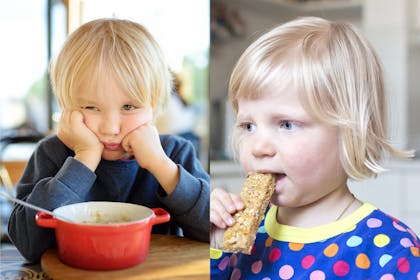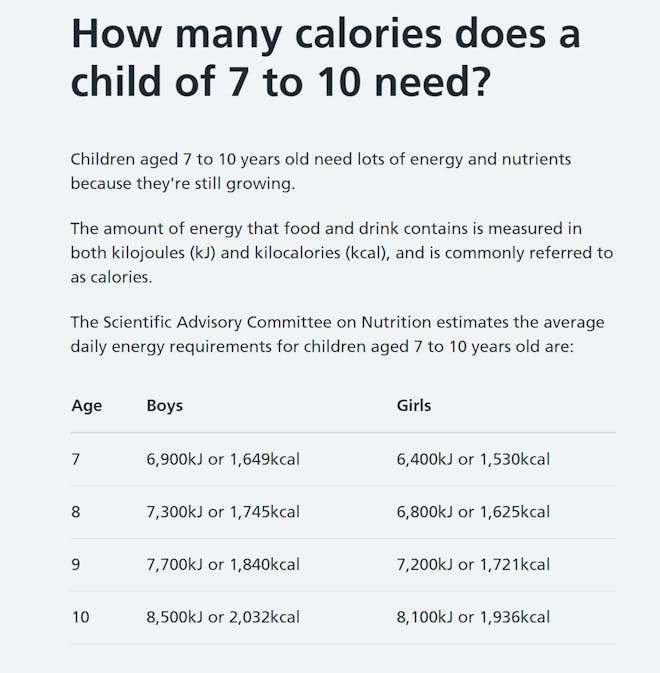Parents urged to stop giving kids snacks when they’re bored

A study has found that 'boredom eating' can start in children as young as 4 – with kids eating 79% more when they're not entertained
For many parents, an easy way to navigate a stressful shopping trip with a child in tow or keep them entertained during a long car journey, is to reach for the snacks.
From fruit and vegetables to crackers and crisps, there’s a whole load of small treats that can help to calm a restless child down during everyday tasks.
But now, researchers are advising parents to stop reaching for the snacks to keep kids entertained – because doing so could lead to future challenges – leading to children turning to food when they're bored.
The warning comes as a study found children as young as 4 eat more when they're bored.
- The best healthy snacks for kids
- Free £205 from bank and NO NEED to switch
- Thousands of households to get £100 cost of living payment
- Families to get £150 worth of supermarket vouchers
- How to talk about sex with your child
Children as young a 4 are 'boredom eating'
A new study by Aston University in Birmingham found children as young as 4 eat 79% more calories on average when they are bored – and consume 5 times more calories from being given food to soothe them.
In their findings, the experts who carried out the research revealed that ‘emotional feeding appears to enhance the likelihood of children eating more when they are upset, potentially teaching children to seek food when their mood is low.’
The study involved 119 children aged 4 and 5, who were asked to take part in a series of everyday scenarios where their mood was assessed.
They were given a standard meal and asked to indicate when they were full, and the study found that children who were feeling bored ate 95 kcal when they were already full, compared to children in a neutral mood condition who ate just 59 kcal.
The researchers found that if parents reported using food to soothe their child’s emotions often and their child was highly emotional, children ate 5 times more kilocalories when feeling bored (104 kcal) compared to in a neutral mood (21 kcal).
Short-term fix could lead to 'future challenges'
Professor Claire Farrow who worked on the study warns parents that by offering food as an emotional comfort, this could lead to issues in the future.
‘It is commonly assumed that children tend to turn to food when bored and that some children are more likely to do this than others,’ she says.
‘This is the first study to experimentally test this in the laboratory.
'Whilst there do appear to be individual differences between children in terms of their eating when bored, it is helpful to know that the feeding practices that adults use around food might shape the likelihood of this happening.
‘Although it is tempting to use food as a tool to comfort children, research suggests that emotional feeding might lead to greater emotional eating in the future.
'It is important that parents and caregivers are aware that this short-term fix could create future challenges.
'Children need to learn from boredom'
‘Boredom is easily identifiable, and generally easily rectified, so helping parents to deal with children’s boredom without using food would be a potentially helpful way of reducing less healthy snacking’ Dr Stone, 1 of the experts leading the study suggests.
‘The experience of boredom is important in the development of children’s sense of self and creativity, so it’s not recommended that children could or should avoid being bored’ she says.
Instead, she suggests children need to learn to experience boredom without turning to food, and that parents could try to divert their child’s attention away from food when feeling bored, or restructure the home food environment to make it less likely that children turn to food when they are bored.
What healthy snacks can I give my child?
The NHS suggests that the following healthy snacks for young children:
- raw vegetable sticks, such as cucumber and carrots, on their own or with hummus
- a piece of fruit
- a plain yoghurt with a sliced banana in it
- a slice of toast with cheese spread, hummus or peanut butter
- some crackers, breadsticks or unsalted rice cakes with cheese and vegetable sticks
- a bowl of unsweetened cereal with whole milk
How many calories should a child eat in a day?
How many calories your child needs depends on a lot of factors, including how active they are.
The NHS suggests: ‘you'll need to use your own judgement on child-size portions.
'A good rule of thumb is to start meals with small servings and let your child ask for more if they're still hungry.’
You can also look at the NHS’s Eatwell Guide to find out more about portion sizes and the different food groups your child needs.
For children aged 7-10 in the UK, the calorie guidelines from the NHS are as follows:
Age 7 Boys: 6,900kJ or 1,649kcal Girls: 6,400kJ or 1,530kcal
Age 8 Boys: 7,300kJ or 1,745kcal Girls: 6,800kJ or 1,625kcal
Age 9 Boys: 7,700kJ or 1,840kcal Girls: 7,200kJ or 1,721kcal
Age 10 Boys: 8,500kJ or 2,032kcal Girls: 8,100kJ or 1,936kcal

Are there any benefits to help me get healthy food for my child?
The Healthy Start scheme may be able to help you buy food and milk if:
- you have children under 4 and get certain benefits, like income support
- you're at least 10 weeks pregnant and get certain benefits, like income support
- you're pregnant and under 18
If you’re eligible, you’ll be sent a Healthy Start card which you can use to buy certain types of milk, infant formula, fruit and vegetables.
For more information, or to apply for a card, visit the Healthy Start scheme website.
Related Stories








